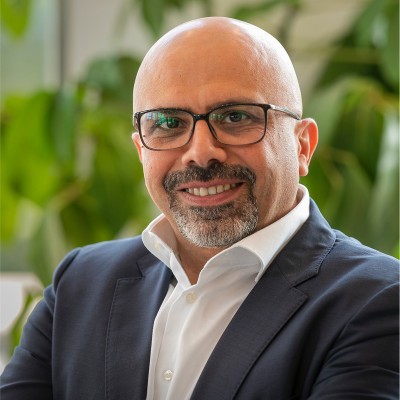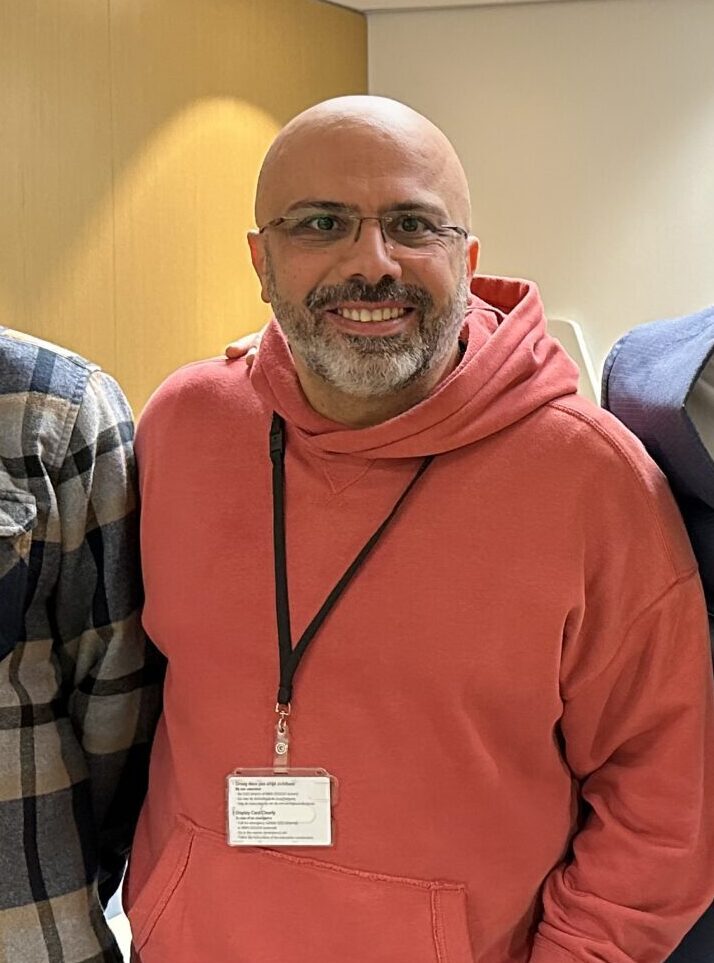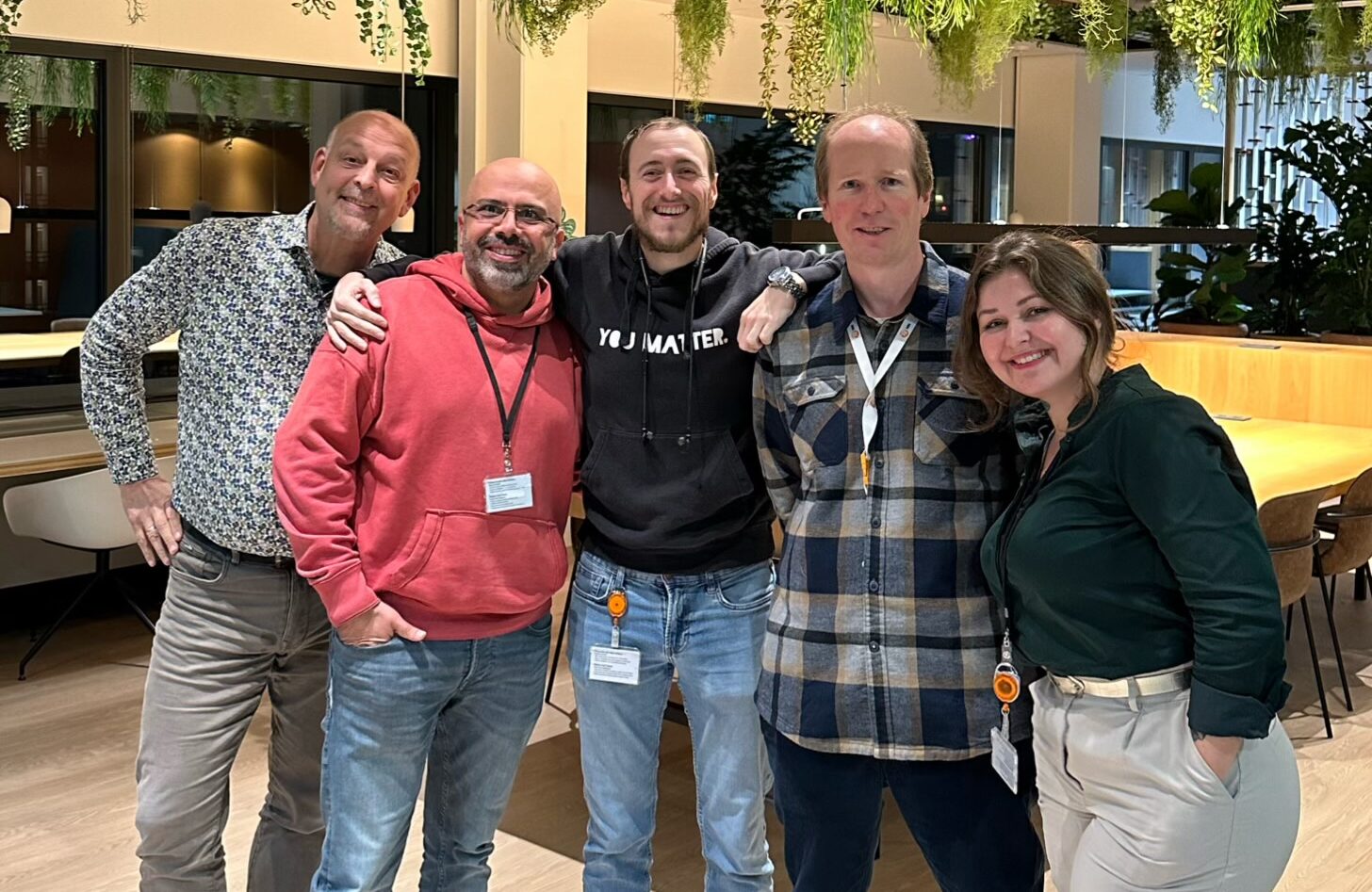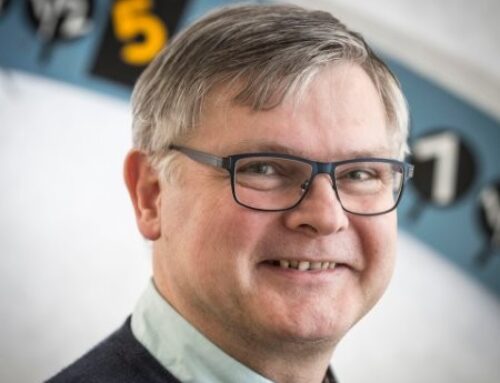Welcome back to my series, where I shine a light on the remarkable individuals who’ve stood as allies in my professional journey. Today, I turn the spotlight toward Ahmed, my manager, whose influence on my career has been nothing short of transformative. Ahmed is the Product Manager of our ‘Data and AI, and Engineering Enablement’ domain and the brain behind the Compass operating model.
Before we dive into the heart of this post, I want to clear the air about something: writing this tribute to Ahmed isn’t a strategic play for brownie points. In the structured realm of corporate life, promotions and raises aren’t achieved by flattery; they are – unfortunately – bound by budgets, processes, systems, and decisions from the higher echelons (oh, how I wish it would be that easy, haha). At most, sharing my experiences and appreciation might enhance the already positive rapport we share. I’m putting pen to paper (or fingers to keys) because my gratitude for Ahmed’s leadership and support is genuine, stemming from a place of respect and recognition for the impact he has on my professional journey. With that out of the way, let’s dive in.
Ahmed Elnahas and I first crossed paths post-reorganization, around May/June 2023, when the new roles and domains were still as fluid and questionable as the coffee they serve in our coffee corners. My little brainchild, a tool I had nurtured in my previous role as ‘specialist,’ found a new home in his domain – making perfect sense but leaving me in professional limbo.
Ahmed saw potential in me and wanted to talk to me about the still open position of Product Owner for the newly formed team in his domain. Honest, direct, all cards on the table, “Why not you, Juliette?”, he asked, but I was still hesitant. I shared with Ahmed that I am gifted. I explained that media paints a stereotypical and rosy picture of giftedness and that management styles can make or break me at work, potentially leading to complete bore-out [If this piques your interest, read more about bore-out here]. However, if I get freedom and autonomy, I told him, “I will be able to move mountains in mere days”. Ahmed took a few seconds to think. “OK”, he replied, “I can work with that. Just let me know what you need”. From that moment, our collaboration was set in motion, grounded in mutual respect and a shared language of directness. It was clear from that first talk that Ahmed recognized me as an individual, with all my quirks, talents, and potential.
We have been working together since July 2023, officially since December 2023. And I feel grateful for having him as my manager.
To describe the synergy between Ahmed and me, I like to use a vivid metaphor that perfectly encapsulates our work dynamic. Picture us on a metaphorical field, tasked with capturing a flag atop a distant tower—symbolic of our shared goals and aspirations. Ahmed, with his strategic foresight, points to the flag, instigating our challenge with a simple, “That one. Let’s go for it.”


The twist comes with the unexpected arrival of competing teams, each vying for their own flags or, perhaps, ours. In this moment of impending chaos, Ahmed’s leadership style kicks in. He turns to face the oncoming challengers with a resolute, “I’ve got this. You run for the flag.” This gesture, him holding the fort while I dash towards our goal, epitomizes the trust and autonomy he grants me.
Our dynamic is one of mutual respect and faith in each other’s abilities. Ahmed doesn’t hover or micromanage; he provides a clear objective and then steps back, allowing me the freedom to navigate the path in my own stride. This approach not only empowers me, but it also accelerates our progress, as we each play to our strengths, knowing that we have each other’s support.
This “capture the flag” metaphor has since become a cornerstone of our working relationship, symbolizing the blend of autonomy and support that fuels our success. I believe it’s this very quality of leadership that elevates Ahmed from simply being a boss to truly embodying the role of a leader. It is a leadership style that I not only appreciate but also one I hope to master myself. It is why I consider Ahmed a true role model who inspires me in my career.
Ahmed and I often find ourselves in conversations about diversity. He is an Egyptian Muslim in the Netherlands, and I am a woman working in IT. We talk about religion, culture, bias, discrimination, and microaggressions. I truly enjoy our conversations, which can be intellectual and philosophical in depth. When discuss gender discrimination, he shares stories of his daughter’s assertiveness with pride and beams with respect when he mentions his wife. Our conversations delve into masculinity and femininity, challenging stereotypes and norms. And although I identify as a feminist, he sometimes makes astute observations that I had not even identified myself due to my own internalized bias. This was especially poignant when reflecting on an article about women adapting to ‘male’ communication styles in leadership, in which I recognized my unconscious shift over the years.
In the context of being the sole woman in our 13-member management team, I reflected on the article with Ahmed in one of our conversations, Ahmed’s response was both surprising and heartening. “Why try to blend in as one of the guys? Your unique perspective is what we need,” he advised, championing authenticity over conformity. “I have enough men already, just be yourself. Feel free to be feminine”. His words were a wake-up call. Over the years, I had fully internalized the idea that to be heard, I had to adjust and fit in. I never considered not doing so. But Ahmed urged me to bring my authentic self to the table. It’s this ethos of inclusion that Ahmed fosters within our management team, ensuring that diversity extends to genuinely valuing and leveraging the varied perspectives each of us brings.
I can comfortably walk into a management meeting wearing a vibrant blue floor-length dress without fear that it would diminish my voice or presence; thanks to the inclusive culture Ahmed has fostered, every team member engages with me with the same level of seriousness and respect. This environment reflects his careful selection of like-minded individuals and his commitment to setting a high standard for our collective values.


Ahmed also supports me by championing my contributions and ideas within our management team, and beyond, which is particularly evident during our one-on-one strategy sessions, where we dissect new concepts and plans in detail. In these one-on-one meetings, Ahmed engages deeply, asking probing questions to refine and help strengthen the strategies I propose. He can be critical and harsh, but never to harm and always to help.
What stands out is his approach once we step out of the strategy room. In ‘public’ settings, Ahmed transitions from a critical sounding board to my staunchest advocate. His backing is unwavering, defending the strategies that I propose with a conviction that leaves no room for doubt. This form of support extends beyond mere agreement; it is a powerful affirmation of my work and vision. Ahmed’s public defence of my ideas is not about shielding me from those in power but to endorse my capability and the value I bring, putting me in a position of power. It’s a nuanced form of allyship that amplifies my voice and contributions, ensuring they’re not just heard but respected and acted upon.
This dynamic, where critique is private and support is public, not only bolsters my confidence but also solidifies the trust and respect I receive from others.
Ahmed demonstrated his commitment to my professional growth more recently when an exciting external opportunity came my way. It was a chance to serve on a soundboard for a network dedicated to women in IT—a role that resonated with my passion for diversity and empowerment in the tech sphere. Naturally, I turned to Ahmed for guidance, unsure if I would get corporate approval for such engagements.
His response was nothing short of empowering. Instead of hedging with caution or bureaucracy, Ahmed immediately shifted into how-can-I-help mode. “What do you need from me?” he asked, ready to mobilize resources, make connections, or navigate any red tape that might stand in the way. His enthusiasm wasn’t just about compliance; it was about championing my involvement and ensuring I could make the most of this opportunity.
This wasn’t an isolated incident but a reflection of Ahmed’s overarching approach to leadership. He’s not just a manager but a mentor, keenly aware of my aspirations and always looking for ways to support and amplify them. His proactive stance on career development goes beyond mere encouragement; it’s about actively creating pathways for growth and exposure. This level of engagement and advocacy is rare and invaluable, underlining the profound impact a supportive leader can have on one’s career trajectory.
In Ahmed’s ethos, support is more than a word; it’s action, it’s advocacy, it’s the tangible manifestation of belief in my potential. It’s this spirit of genuine allyship that not only elevates my journey but also helps me see what I am truly capable of.
Ahmed’s support is unwavering, not just when I’m at the peak of productivity and achievement, but perhaps even more so during challenging times, as I learned last week.

I have been navigating the dual role of professional commitments and personal care responsibilities at home. Informal caregiving (‘mantelzorg’ in Dutch) has become a significant part of my life outside work. This recently took a demanding turn one Thursday evening when an urgent medical emergency with my father led my mother and me on a harrowing journey to the hospital, culminating in a sleepless night in the emergency room.
Amid this turmoil, reaching out to Ahmed was more than just a procedural step; it was a call to someone I knew who understood the depth of my situation. Informing him of my need to take Friday off, I received unwavering support. His concern extended beyond mere formalities, as he stayed in touch, offering help until the early hours and continuing to check in over the following days.
Ahmed’s response to my family emergency underscored a profound understanding of the delicate balance between professional life and personal duties, especially significant in contexts where women often shoulder a larger share of caregiving responsibilities. His encouragement to take additional time for self-care, even after the immediate crisis had passed, was a testament to his genuine commitment to the well-being of his team members.
This support is not an isolated act but a reflection of Ahmed’s leadership ethos, which celebrates family values and empathetic understanding as core principles. He takes pride in leading a team that shares a strong moral compass, recognizing that true inclusivity in the workplace extends beyond the office to how we support each other through life’s inevitable challenges.
In Ahmed’s leadership, I genuinely see a beacon for inclusive practices, where the integration of professional excellence and personal well-being is not just encouraged but actively supported, making a tangible difference in the lives of those he leads.

